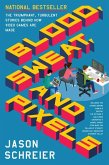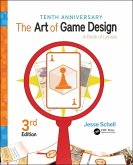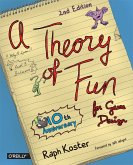The book describes the world's first successful experiment in fully automated board game design. Evolutionary methods were used to derive new rule sets within a custom game description language, and self-play trials used to estimate each derived game's potential to interest human players. The end result is a number of new and interesting games, one of which has proved popular and gone on to be commercially published.
"[This book] is a valuable contribution to evolutionary computation and more generally to artificial intelligence. It is engaging to read, easy to follow and lives up to its promises. Furthermore, it delivers insights that should be helpful to anyone interested in AI and games. In the beginning, [the author] cites Leibniz who once said 'Human being are never more ingenious than in the invention of games'. In my opinion, [this book] says how to transfer parts of this ingenuity to the machine." (Amine Boumaza, Genetic Programming and Evolvable Machines, Springer, 2012)








